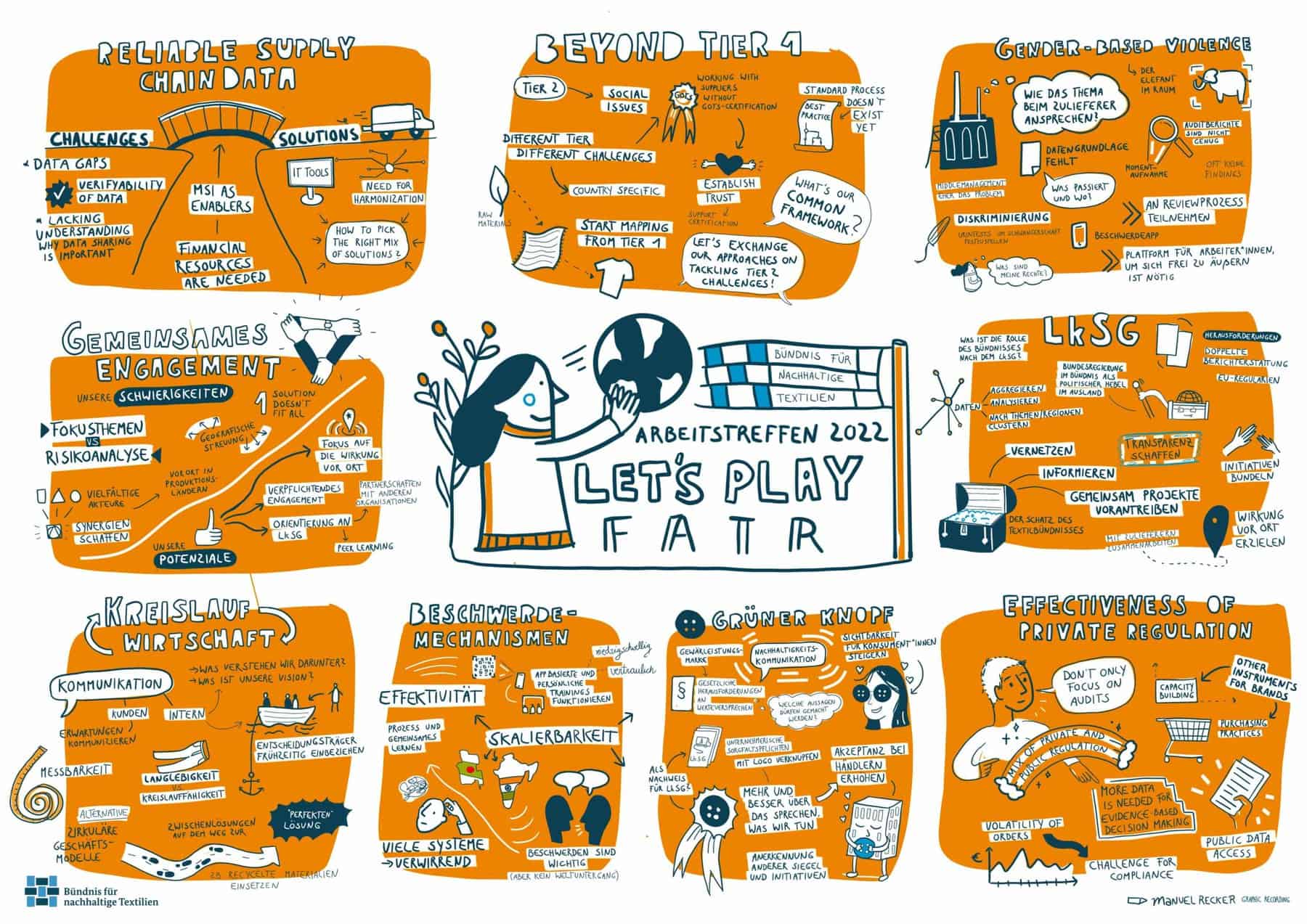Let´s Play, Fair! Arbeitstreffen 2022
This was the Working Meeting 2022
This was the motto of this year's Working Meeting of the Partnership for Sustainable Textiles on 17 and 18 May at BeachMitte in Berlin. However, the participants only leaned back in a deck chair during the breaks, because the event is not called "Working Meeting" for nothing.
On the first day, Jürgen Janssen, Head of the Partnership Secretariat, presented the Annual Report 2021 and took up some of the highlights, progress and successes of the last year. He also informed the approximately 80 participants who were present and 15 who were connected virtually about the planned activities for 2022 and the ideas for the future strategic development of the Textiles Partnership.
“Mitigating climate risks in the textile and garment industry: How to achieve the 2030 goals of the Fashion Industry Charter for Climate Action“ was the topic of the subsequent panel. Tamara Wulf (Apparel Impact Institute), Katy Stevens (European Outdoor Group (EOG)), Steffen Müller (GIZ), Carina Bischof (Fashion Revolution Germany e.V.), Stefan Seidel (PUMA Group) and Lindita Xhaferi-Salihu (UNFCCC) discussed current developments in the reduction of greenhouse gases.
The Parliamentary State Secretary to the Federal Minister for Economic
Cooperation and Development (BMZ) Bärbel Kofler addressed the Partnership members in a video message:
The BMZ's representation on the Steering Committee changes. Anke Oppermann succeeds Anosha Wahidi. Oppermann is head of the BMZ sub-division "Decent work worldwide; food and nutrition security" and used the Working Meeting to introduce herself to the members.
At a market of opportunities, participants were able to learn about and discuss various topics, including supply chain transparency and the Open Apparel Registry, inclusion in textile supply chains, anti-corruption, wages and purchasing practices, climate protection and the circular economy.
During the unconference - also known as bar camp - participants were able to propose topics on Wednesday morning that they would like to work on together with the others in one-hour workshops. The participants chose nine out of 13 crisp pitches. Three workshops each took place at the same time, among others on circular economy, grievance mechanisms, collective engagement in the Textiles Partnership, supply chain data and the Supply Chain Act.
Manuel Recker captured the discussions and results in a graphic recording:
In the afternoon, Torsten Safarik, President of the Federal Office for Economic Affairs and Export Control (BAFA), answered the participants' questions on the Supply Chain Act. He made it clear:
"We are convinced that we can only improve human rights in global supply chains by working together. We share this conviction with you, with the Textiles Partnership. [...] Strong companies and strong human rights belong together. Because only companies with fair, sustainable and robust supply chains are strong companies."
Safarik explained that key processes for implementing the due diligence approach have already been implemented at the Partnership companies and it will therefore be much easier for them to comply with the requirements of the Supply Chain Act: "They started investing in fair and sustainable supply chains earlier than others. And that investment is paying off.
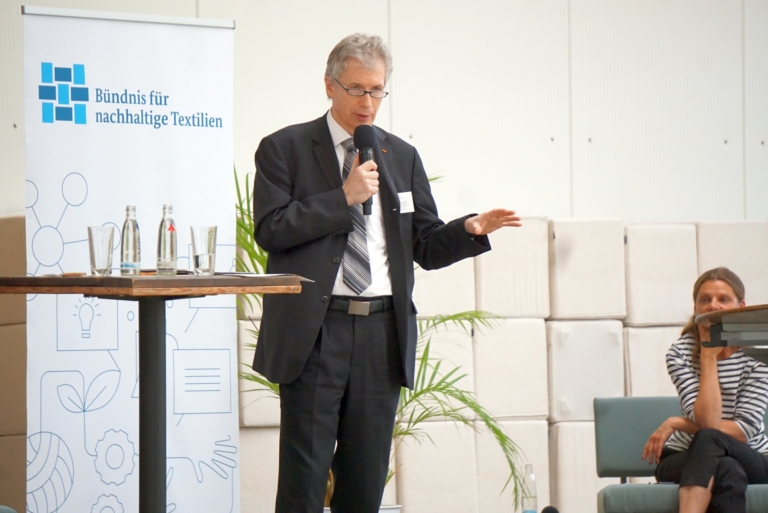
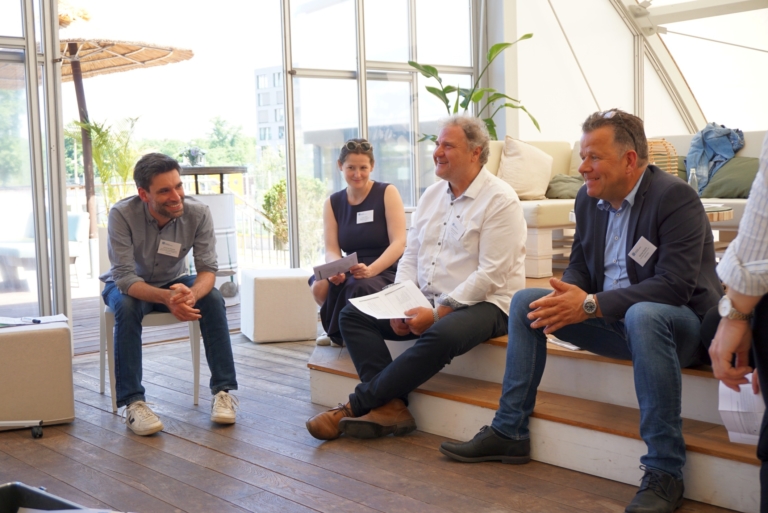
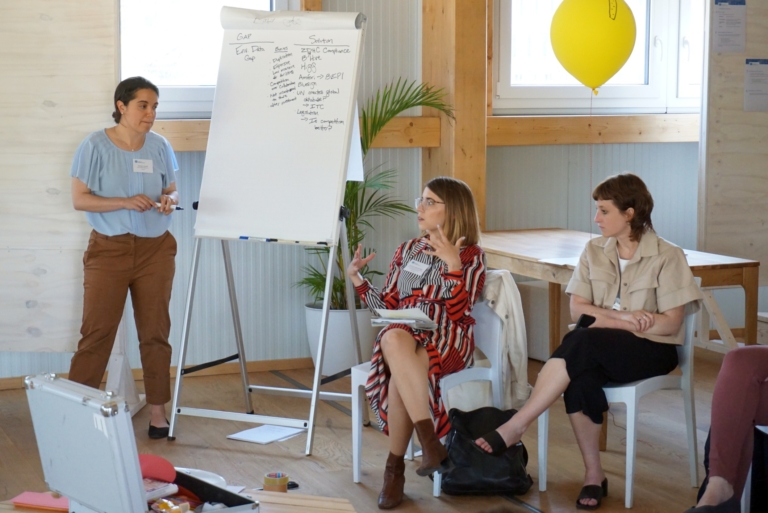
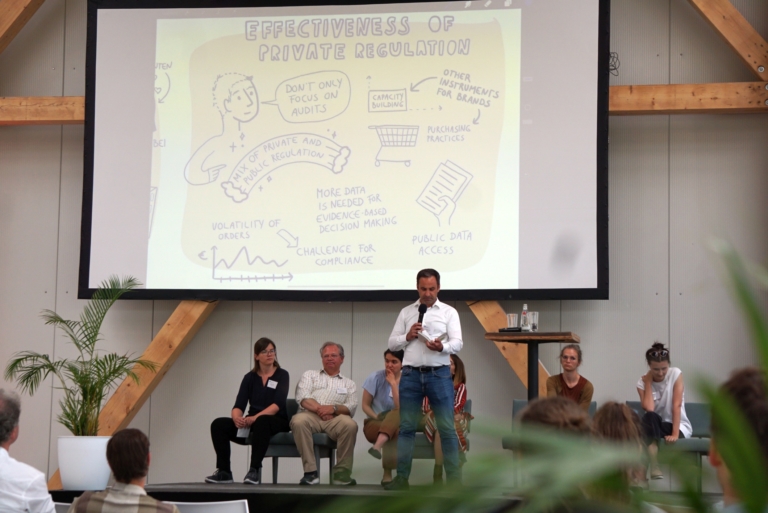
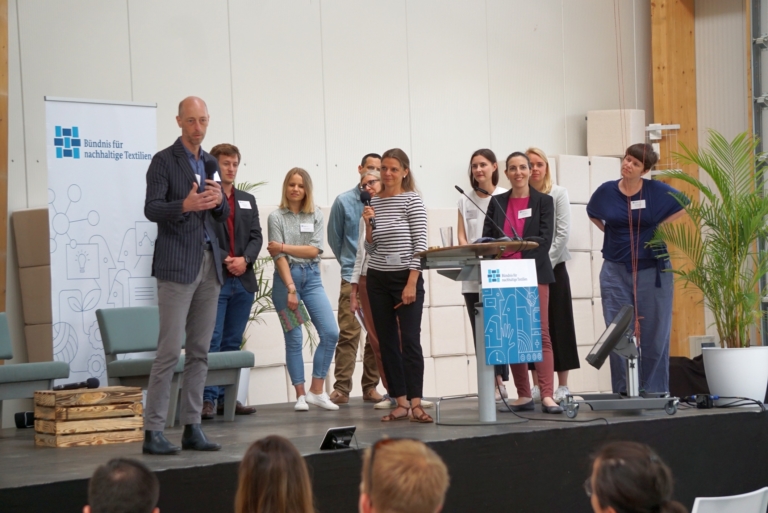
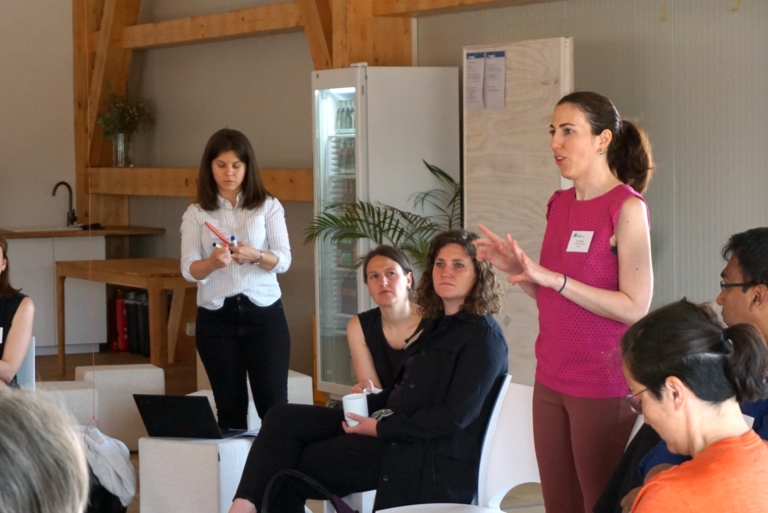
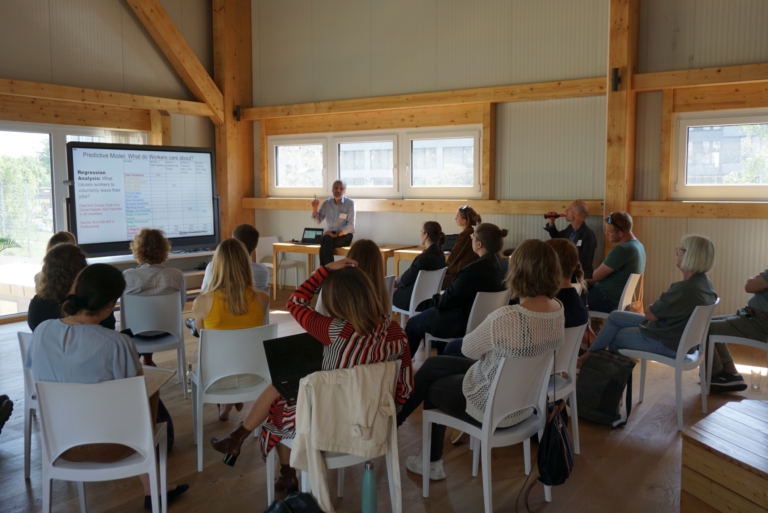
Members receive the documentation and minutes of the Working Meeting in the closed members' area.



